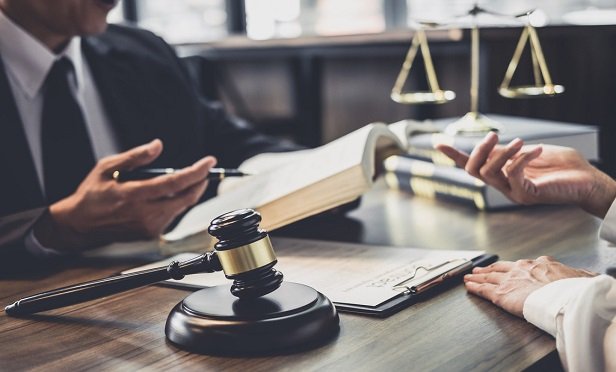 Nancy Inesta, a labor and employment litigator and partner at Baker & Hostetler in Los Angeles and a chair of the firm task force on COVID-19, said that "in advising clients about masks, we are having to look at the guidance that has been promulgated by agencies like the CDC, WHO and OSHA, which by the way, has changed over time. We are not medical doctors, we are attorneys, and we rely on the agencies to provide the parameters for employers." (Credit: Freedomz/Shutterstock)
Nancy Inesta, a labor and employment litigator and partner at Baker & Hostetler in Los Angeles and a chair of the firm task force on COVID-19, said that "in advising clients about masks, we are having to look at the guidance that has been promulgated by agencies like the CDC, WHO and OSHA, which by the way, has changed over time. We are not medical doctors, we are attorneys, and we rely on the agencies to provide the parameters for employers." (Credit: Freedomz/Shutterstock)
At companies around the U.S., general counsel and their outside law firms have been wrestling with COVID-19 and its business and workplace disruptions for weeks now.
In early March, some employers were still skeptical of the seriousness of the threat, and some businesses were resisting government demands for "nonessential" businesses to close, lawyers said. Since then, "everyone has had a Damascus road experience and now takes this seriously," said Howard Mavity, a partner at Fisher Phillips in Atlanta and a member of its COVID-19 and essential business task forces, who said the turning point came around mid-March after the NCAA college basketball finals were suddenly canceled.
Recommended For You
Want to continue reading?
Become a Free PropertyCasualty360 Digital Reader
Your access to unlimited PropertyCasualty360 content isn’t changing.
Once you are an ALM digital member, you’ll receive:
- Breaking insurance news and analysis, on-site and via our newsletters and custom alerts
- Weekly Insurance Speak podcast featuring exclusive interviews with industry leaders
- Educational webcasts, white papers, and ebooks from industry thought leaders
- Critical converage of the employee benefits and financial advisory markets on our other ALM sites, BenefitsPRO and ThinkAdvisor
Already have an account? Sign In Now
© 2025 ALM Global, LLC, All Rights Reserved. Request academic re-use from www.copyright.com. All other uses, submit a request to [email protected]. For more information visit Asset & Logo Licensing.








